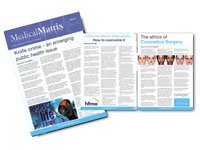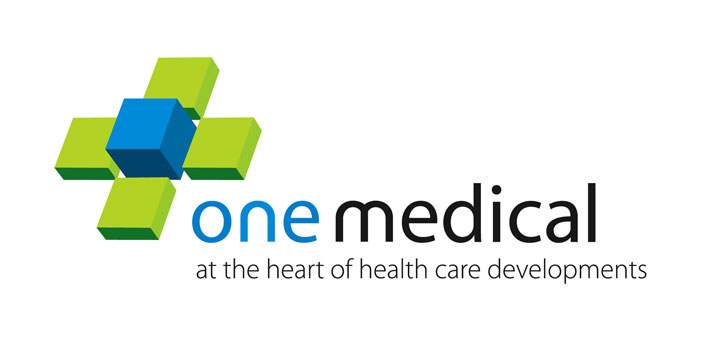by Paul Roasberry
Reprinted from Matrix, Denver Mensa, Janet Roder, Editor
When we think of cults, we usually think of bizarre religious sects, armed compounds, mind control and eccentric leaders. Most of us do not think of Alcoholics Anonymous (A.A.) as a cult, but I do.
Three years ago, I was in the grips of a serious drinking problem. Like most alcoholics, I rationalized my drinking, citing the many terrible circumstances in my life. Then, almost three years ago, I stopped drinking. Period. By myself.
Oh, I attended a half dozen or so A.A. meetings at the time, upon the advice of someone recommended by a friend. The woman who suggested A.A. to me was a licensed psychologist. She was a "recovered alcoholic" and was very active in A.A.
What I found at the meetings was a weird mixture of the deplorable and the laughable. It didn"t take long to notice that something was not quite level with this organization.
I was tipped off to A.A.'s strong cult qualities when the lady psychologist made a somewhat curious remark during the first week or two of my sobriety.
I had an uncle then (he died this past January) who had been an alcoholic prior to 1960. Uncle Ralph consumed, by his own subsequent admission, about a quart of whiskey a day. He stopped drinking without the assistance of A.A. when he met my aunt. It was a condition of their marriage that he stop drinking, and he did.
I remember my Uncle Ralph as a sweet, generous man during the thirty-odd years he was married to my aunt. He was not abusive or cruel, he worked hard, and made an excellent stepfather to my three girl cousins. When I mentioned Uncle Ralph to the lady psychologist, stating that he'd quit drinking on his own, she immediately dismissed my observation with, "Oh, well, he's just a dry drunk." She of course had never met my uncle Ralph, knew positively nothing about his character and yet claimed to be able to diagnose him as a "dry drunk" strictly on the information that he hadn't progressed through the A.A.'s widely touted "twelve step program." Bear in mind, this was a licensed psychologist making an incredibly spurious, rash judgment.
Of course, all cults have this in common: they reject and label as untouchables any who do not embrace their particular version of "Truth." To died-in-the-wool communists, non-believers are "bootlickers of the capitalists," or "counter-revolutionary hooligans." To the born again fundamentalist Christian, non-believers are "agents of Satan." To Moslems, Christians are "devils," and to Nazis, Jews are "swine." To the Alcoholics Anonymous membership, anyone who stops drinking without chanting the mantras of cult founder Bill W. are "dry drunks," pure and simple. You don't even need to know anything more about the self-quitters -- the fact that they quit drinking without A.A. makes them dry drunks, a priori.
Don't get me wrong. I do not advocate suppressing A.A. or any other cult. I simply want you to know, in case you are a problem drinker and are toying around with the idea of quitting, that it's O.K. to develop your own solution to your own problem. The last thing you need when you undertake a major, radical transformation in your life is to be accused by a bunch of self-righteous fanatics of being "a dry drunk," whatever the hell that is.
The whole A.A. program hinges upon the alcoholic's acceptance of what A.A. calls a "higher power." Conversely, adherents to the twelve-step program are expected to renounce any personal responsibility for, or control over, their problem. This blatant renunciation of the concept of free will is also a characteristic of every single other cult I can think of -- the individual counts for nothing, while the non-existent, the illusory, the hypothetical, is all. Self-respecting, proud, analytical achievers do not make good cult members. A cult follower must be stripped of his sense of individual worth -- in many sects, he is humiliated sexually, deprived of sensory stimuli, sequestered from the larger community, or otherwise manipulated to look upon himself as degraded and worthless. In A.A., you are plopped in a ring of cultists every evening and pressured to place your entire destiny in the hands of some "higher power."
When I began to ask hard questions about the nature of this "higher power," half expecting to hear some gibberish about "god," I learned (no kidding!) that one member even had his motorcycle represent his "higher power." What form of silliness is this that empowers motorcycles to cure us of alcoholism, I wondered.
At A.A. meetings, everyone sits around in a big circle. There are readings from "the Big Book," a not-very-well-written compendium of home-spun philosophy and anecdote authored by Bill W. and his colleagues some decades ago. Every cult needs its sacred writings, its revealed word. Members start talking about themselves and their alcoholism, and oddly, this sounds more like "self-criticism" under Mao's cultural revolution than anything therapeutic. In fact, it's all directed toward precisely the same end as "confession" in the Catholic church and Maoist "self-criticism" -- de-emphasis of the individual and a concomitant glorification of the ethereal, the other-worldly, the imaginary.
At some point, if you begin to question this "program" of A.A.'s, the talk gets tough and they start to lean on you. You are told that you can never recover on your own, that you are doomed to lapse over and over again into drinking binges, or at best, become a "dry drunk." (This is supposedly someone who has stopped drinking but still manifests all the unconscionable traits of a drunk: all the sociopathy, all the abusiveness, all the manipulative behaviors.)
The more you try to trot out examples of persons who have transformed their own lives under their own steam, the more the party line is thrown back at you: you are powerless against drink. Powerless. Any so-called examples of alcoholics who quit drinking without the twelve steps are in reality only examples of "dry drunks."
When I left A.A., I made the comment to someone that if I were indeed "powerless," I might as well commit suicide, because a life without any control over my destiny would be pointless and absurd. I stated again my conviction that I did not regard myself as powerless, and I went about my recovery in the most sensible way I could imagine. I removed alcohol from my home, I found some healthy pastimes to pursue (mountain climbing, writing, and painting) and, in the whirlwind breakup of my marriage, I devoted myself to staying afloat financially, making my new company prosper, and seeking out some like-minded companionship -- that was when I re-joined Mensa.
So, if you are determined to quit drinking, you can save yourself about three hundred sixty-five hours a year, plus travel time.
Try the "one-step" program, instead: just stop drinking. Believe me: you can do it.
I did.
















